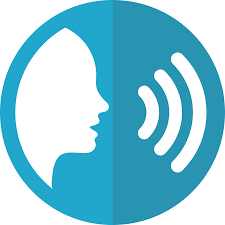Language Pronunciation the fastest

Language pronunciation is a fundamental aspect of effective communication, influencing how we express ourselves and understand others. It is the way in which spoken words are articulated, enunciated, and stressed in a particular language. Accurate pronunciation is essential for clear and meaningful communication, whether in one’s native language or when learning a new language. In this 1000-word exploration, we will delve into the significance of language pronunciation, the challenges it presents, and strategies for improving pronunciation.
The Significance of Language Pronunciation
Pronunciation is a critical component of language and serves several vital functions:
- Clarity and Comprehension: Accurate pronunciation ensures that the listener can understand the speaker’s intended message. Mispronunciations can lead to misunderstandings and communication breakdowns.
- Effective Communication: Proper pronunciation conveys the intended meaning and tone of the message. It allows speakers to express their thoughts, emotions, and ideas clearly and persuasively.
- Cultural Sensitivity: Correct pronunciation demonstrates respect for the culture and language of the audience or interlocutor. Mispronunciations can be perceived as disrespectful or insensitive.
- Language Learning: When acquiring a new language, mastering pronunciation is crucial. It not only helps learners communicate effectively but also enhances their overall language skills.
- Professional and Academic Success: In professional and academic settings, clear and accurate pronunciation is highly valued. It is often a factor in job interviews, presentations, and academic assessments.
Challenges in Language Pronunciation
While the significance of pronunciation is clear, mastering it can be a challenge, especially when learning a new language. Here are some common challenges that individuals face:
- Phonetic Differences: Every language has its unique set of phonemes, which are the distinct speech sounds that make up words. Learning the phonemes of a new language can be challenging, as they may not exist in one’s native language.
- Intonation and Stress: Proper intonation and word stress can be challenging to grasp. In many languages, including English, the meaning of a word can change based on the stress placed on different syllables.
- Accent Reduction: Individuals learning a new language may have accents that reflect their native language’s pronunciation patterns. Reducing this accent and adopting the pronunciation of the new language can be difficult.
- Tonal Languages: Some languages, such as Mandarin Chinese and Thai, are tonal, meaning that the tone in which a word is spoken can alter its meaning. Learning to differentiate and produce tones accurately can be a considerable challenge.
Strategies for Improving Pronunciation
Improving pronunciation, whether in one’s native language or when learning a new language, is a valuable skill. Here are some strategies to enhance language pronunciation:
- Phonetic Practice: Familiarize yourself with the phonetic symbols of the International Phonetic Alphabet (IPA). This can help you understand the correct pronunciation of words in dictionaries and language resources.
- Listen Actively: Pay close attention to native speakers of the language you’re learning. Listen to podcasts, watch films, and engage in conversations with native speakers to develop an ear for the language’s sounds and rhythm.
- Use Pronunciation Guides: Utilize language learning resources that provide pronunciation guides, audio examples, and exercises. Many language learning apps and courses offer pronunciation practice.
- Practice with Tongue Twisters: Tongue twisters are fun and challenging exercises that help improve articulation and diction. Repeatedly practicing tongue twisters can enhance your pronunciation skills.
- Receive Feedback: Seek feedback from native speakers or language instructors. They can identify specific areas where your pronunciation needs improvement and provide guidance.
- Record Yourself: Recording your speech and comparing it to native speakers can help you identify areas for improvement. It also allows you to track your progress over time.
- Break Words Down: When learning new words, break them down into syllables and practice the pronunciation of each syllable. Gradually build up to pronouncing the entire word correctly.
- Work on Stress and Intonation: Pay attention to word stress and intonation patterns in the language you’re learning. Practice mimicking these patterns in your speech.
- Use Speech Recognition Tools: Speech recognition technology in language learning apps can provide immediate feedback on your pronunciation accuracy and help you identify areas for improvement.
- Be Patient and Persistent: Improving pronunciation takes time and consistent effort. Be patient with yourself and keep practicing regularly.
Refer to the service https://texttosound.com/about-
The Impact of Technology on Pronunciation Improvement
Advancements in technology have revolutionized language learning and pronunciation improvement. Various language learning apps and software now incorporate speech recognition and pronunciation analysis features. These tools provide instant feedback on pronunciation accuracy, allowing learners to refine their speech. Additionally, online platforms and communities offer opportunities for language learners to connect with native speakers for pronunciation practice and feedback.
In Conclusion
Language pronunciation is a vital aspect of effective communication, playing a crucial role in conveying meaning, tone, and cultural sensitivity. While it can present challenges, there are numerous strategies and resources available to help individuals improve their pronunciation skills, whether for language learning or enhancing communication in their native language. With dedication and practice, individuals can significantly enhance their pronunciation and become more confident and effective communicators.
